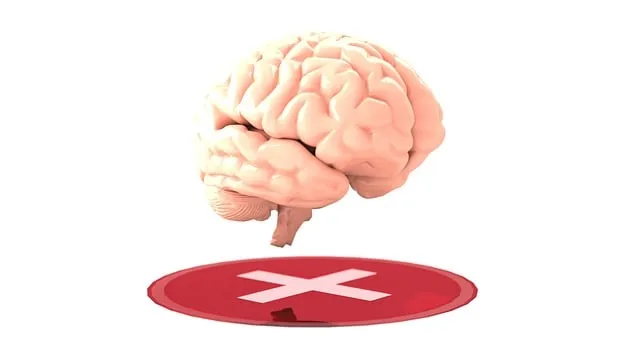Kaiser Permanente's mental health facility in Englewood leads the fight against stigma through comprehensive strategies, community engagement, and innovative programs. They empower patients by educating healthcare staff with tailored training, fostering empathy through open conversations, and providing peer support groups for shared experiences. Community outreach, awareness campaigns, and media collaborations normalize mental health discussions, encouraging help-seeking without judgment. These efforts create a supportive environment, improving mental well-being outcomes across the community.
Stigma surrounding mental illness persists, negatively impacting those affected and hindering their path to recovery. This article explores targeted efforts to reduce stigma at Kaiser Permanente Englewood, a leading mental health facility. We delve into strategies such as community engagement initiatives, education for healthcare professionals, peer support groups, and media representation, all aimed at fostering understanding and breaking down barriers to care. By examining these approaches, we hope to shed light on how communities like Kaiser Permanente Englewood are transforming perceptions of mental illness.
- Understanding Stigma: Its Impact on Mental Health at Kaiser Permanente Englewood
- Community Engagement: Breaking Down Barriers and Promoting Awareness
- Education as a Tool: Training Programs for Healthcare Professionals
- Peer Support Groups: Empowering Individuals to Share Their Stories
- Media Representation: Shaping Public Perception of Mental Illness
Understanding Stigma: Its Impact on Mental Health at Kaiser Permanente Englewood

At Kaiser Permanente Englewood, a leading mental health facility, understanding stigma and its profound impact on individuals’ willingness to seek help is paramount. Stigma surrounding mental illness often manifests as negative perceptions, stereotypes, and discrimination, creating barriers for those in need. This can lead to increased anxiety, depression, and even burnout among patients, hindering their recovery process.
The healthcare providers at Kaiser Permanente Englewood recognize that addressing stigma requires a multifaceted approach. Implementing burnout prevention strategies for staff is crucial, as exhausted healthcare professionals may inadvertently contribute to the problem through dismissive or judgmental attitudes. Moreover, encouraging self-awareness exercises and open conversations about mental health can foster empathy and reduce fear among patients, making them more comfortable in seeking support. Through these efforts, Kaiser Permanente Englewood aims to create a supportive environment where individuals feel empowered to manage their mental well-being effectively.
Community Engagement: Breaking Down Barriers and Promoting Awareness

In efforts to reduce the stigma surrounding mental illness, community engagement plays a pivotal role. Organizations like Kaiser Permanente’s mental health facility in Englewood have recognized the power of community involvement in tackling this issue. Through public events, workshops, and collaborative initiatives with local organizations, they aim to break down barriers and foster an environment of understanding and support. By integrating mental health discussions into everyday conversations, these efforts help dispel myths and misconceptions, encouraging open dialogue about mental well-being.
Community outreach programs and public awareness campaigns are instrumental in this process. Kaiser Permanente, for instance, might partner with local schools, businesses, and community centers to develop tailored Trauma Support Services, ensuring that resources and education are accessible to diverse populations. These initiatives not only raise awareness but also provide a platform for individuals to share their stories, fostering empathy and solidarity within the community. Such inclusive approaches are essential in building a supportive network where everyone feels empowered to seek help without fear of judgment.
Education as a Tool: Training Programs for Healthcare Professionals

Education plays a pivotal role in breaking down the barriers associated with mental illness stigma. One notable example is Kaiser Permanente’s mental health facility in Englewood, which has pioneered training programs tailored for healthcare professionals. These initiatives focus on disseminating knowledge about Mind Over Matter principles and the latest research in mental wellness. Through interactive workshops and seminars, medical staff gain a deeper understanding of various mental health conditions, thereby enhancing their ability to offer compassionate and effective care.
Furthermore, these educational programs emphasize the importance of Self-Care Routine Development for Better Mental Health. By teaching professionals how to maintain their own mental wellness, Kaiser Permanente’s efforts create a ripple effect, inspiring patients to also prioritize their psychological well-being. Additionally, the facility has launched a Mental Wellness Podcast Series Production, providing accessible resources and real-life stories that contribute to destigmatizing mental health discussions both within the healthcare community and among the wider public.
Peer Support Groups: Empowering Individuals to Share Their Stories

Peer Support Groups play a pivotal role in reducing the stigma surrounding mental illness at facilities like Kaiser Permanente’s mental health facility in Englewood. By fostering an environment where individuals with shared experiences can connect, these groups empower members to share their stories openly. This act of sharing breaks down barriers and promotes understanding, challenging societal perceptions about mental health.
At Kaiser Permanente Englewood, Peer Support Groups have been developed to encourage active participation in one’s own recovery journey, enhance coping strategies, and build resilience. Through these groups, individuals gain a sense of belonging and learn valuable skills in advocating for their mental wellness. The positive impact extends beyond the facility, as members carry these newfound tools into their daily lives, contributing to a broader culture of open dialogue and improved mental health outcomes.
Media Representation: Shaping Public Perception of Mental Illness

The media plays a significant role in shaping public perceptions about mental illness. Accurate and compassionate representations in films, television shows, and news coverage can help reduce stigma by fostering understanding and empathy among the general public. For instance, a mental health facility like Kaiser Permanente in Englewood provides comprehensive services, including trauma support and crisis intervention guidance, which aligns with positive media portrayals of effective treatment and recovery. By showcasing real-life stories of individuals overcoming challenges related to mood management, these platforms can normalize conversations about mental health and encourage people to seek help without fear of judgment.
However, it’s essential to recognize the impact of negative or stereotypical media representations that have perpetuated stigma historically. Depictions of mental illness as solely a personal weakness or a source of sensationalism contribute to misinformation and misgivings. Through mindful storytelling, the media can instead promote awareness about various mental health conditions, dispel myths, and highlight the importance of early intervention and ongoing support services like those offered at Kaiser Permanente Englewood. This shift in narrative is crucial in creating a more accepting society where individuals are encouraged to prioritize their mental well-being.
Stigma reduction efforts play a pivotal role in fostering better mental health outcomes, as evidenced by programs implemented at Kaiser Permanente mental health facility Englewood. By engaging communities, educating healthcare professionals, empowering peer support groups, and shaping media narratives, these initiatives work synergistically to create a more inclusive environment for those facing mental illness. Through persistent efforts and innovative strategies, we can continue to break down barriers and promote understanding, ultimately enhancing the lives of individuals supported by Kaiser Permanente Englewood and similar facilities worldwide.






